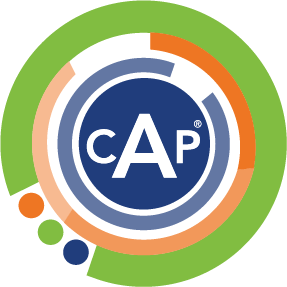Master of Business Analytics and AI (MBAI)

 The Master of Business Analytics and Artificial Intelligence (MBAI) is a professional degree program that provides students with a theoretical knowledge base and practical experience working with data and people in decision making. The content of the degree covers three main domains which are applications of AI, Business Analytics, and Management Opportunities. The program provides students with multiple perspectives about business analytics and artificial intelligence, ranging from ethical and managerial level understanding of implications to practical applications of programming business analytics and AI solutions. Graduates of the Master of Business Analytics and AI can find highly successful careers in a variety of business analytics rolesin private and public sectors where data is used to make decisions.
The Master of Business Analytics and Artificial Intelligence (MBAI) is a professional degree program that provides students with a theoretical knowledge base and practical experience working with data and people in decision making. The content of the degree covers three main domains which are applications of AI, Business Analytics, and Management Opportunities. The program provides students with multiple perspectives about business analytics and artificial intelligence, ranging from ethical and managerial level understanding of implications to practical applications of programming business analytics and AI solutions. Graduates of the Master of Business Analytics and AI can find highly successful careers in a variety of business analytics rolesin private and public sectors where data is used to make decisions.
Apply Now
Admission Requirements
Tuition and Fees
FAQ
International Applicants
Careers

The amount of data generated from our activities on the web and devices every day is staggering. With over 2.5 quintillion bytes of daily data, there is an increased need to understand how to work with this data to increase our ability to make sense of business, society, and the planet. Many businesses struggle to hire employees with both data and business analytics skills, with projected workforce demand growing each year. The Master of Business Analytics and AI program will create graduates who will seamlessly transition to these positions.
Graduates will be equipped with the tools and methods to help organizations make sense of the past and predict the future using advanced analytics and AI. Graduates will be trained in how to manage the data, as well as the legal, ethical, and moral issues that surround the use of digital information in its many forms which include sensor data, images, text, voice, and video.
 The MBAI program has been recognized by the Vector Institute as an AI-Related Master’s program in Ontario.
The MBAI program has been recognized by the Vector Institute as an AI-Related Master’s program in Ontario.
Students in the MBAI program become part of the Vector Institute community and receive access to networking and career events, the Digital Talent Hub, professional development, and other opportunities to grow your AI career!
Students in the program are also welcome to apply for the competitive Vector Scholarships in Artificial Intelligence, which provides $17,500 towards an AI-related master’s degree at an Ontario university
Professional designations are available to graduates of the program and are a great addition to your resume.
 The Certified Analytics Professional (CAP)
The Certified Analytics Professional (CAP)
The CAP is the leading certification for Analytics Practitioners. Taking the CAP exam will separate you from the crowd and create greater opportunities to enrich your career.
 SAS Certification
SAS Certification
SAS certifications are globally recognized, so having them on your resume shows you've received in-depth training from industry experts.
What are the full-time study requirements? |
|
What are the start dates for the program? |
September (Fall) & January (Winter) start |
What is the delivery method? |
Delivered in a hybrid format, combining in-person lectures with online components |
What is the application process? |
|
Is this a STEM program? |
Yes, the Master of Business Analytics and Artificial Intelligence (MBAI) is a STEM program. The Classification of Instructional Programs (CIP) Canada for the program is 110102 – Artificial Intelligence. |
What are the part-time study requirements? |
|
What are the available start dates for the program? |
September (Fall) & January (Winter) start |
What is the delivery method? |
Delivered in a hybrid format, combining in-person lectures with online components |
What is the application process? |
-
MBAI 5100G - Business Analytics
This course will provide a coverage of concepts and tools used in different stages of a data analytics project, including problem definition, data collection and preparation, data analysis, and knowledge transfer. Statistical and other analytical tools such as data mining, machine learning, social network analytics, text mining and their application to business will be explored.
In the current business world, data is a crucial valuable asset owned companies. It is vital for businesses to be able to effectively and efficiently define their problems, collect required data, examine the data, and communicate this information in an appropriate manner to decision makers. Given the massive amount of data available and constant technological advancements in the field of data analytics, it is crucial that students gain skills required to tackle these data-related problems. This course will provide hands-on training for learning these sought-after skills.
-
MBAI 5110G - Big Data Systems Design
The ability for organization to ingest and analyze significant volumes of data as it is generated and retrospectively is becoming a fundamental need for organizational success. Big Data systems design is a design and planning approach that enables the systemic planning of how and organization will ingest ad analyze these significant volumes of data for given organization objective(s). The goal of Big Data systems design is to improve organizational success and through improved organization processes and improved customer experiences. This course enables students to combine solution components based on the type of Big Data and organizational objective to formulate an integrated BIg Data systems design. Solution components include Big Data storage, Big Data processing and BIg Data analytics including artificial intelligence. Students will also assess how the BIg Data systems design can ben provisioned in the cloud.
-
MBAI 5200G - Ethical and Legal Issues in Analytics and AI
This course highlights key legal and ethical issues related to data analytics and AI. Increasingly, scholars and practitioners are urging data scientists and businesspersons to be more cognizant of the accidental and intentional harms cause by the widespread deployment of machine learning and AI. THis course examine potential liabilities in law related to data analytics and AI and juxtaposes legal requirement with ethical considerations. The course will also explore some of the most pressing ethical issues related to data analytics and AI. This course situates these exploration in the context of a set of core guiding principles for ethical and responsible data management.
Possible topics include: obtaining meaningful consent to the collection of data; standard contractual provisions related to data analytics; liabilities related to outsourcing elements of data analytics (jurisdiction); privacy-related torts; negligence liability; ethical frameworks; implicit bias and the problem of bias in AI; tensions fairness and IP rights in black box AI; and the principles of ethical research in AI.
-
MBAI 5300G - Programming and Data Processing
The first part of the course studies data processing using the following Python libraries: Pandas, Matplotlib, NumPy, SciPy, and others. Jupyter notebooks will be used for visualization. In process, the course introduces Calculus and Statistics for machine learning. The second part of the course studies natural language processing techniques, network analysis, web log data analysis, and data integration techniques including data Wrangling.
-
MBAI 5310G - Artificial Intelligence Programming
Students will learn to program a computer system to make predictions on, classify or cluster data that the system has never seen before. Topics include theory and practice of supervised and unsupervised learning such as reinforcement learning covering well-known algorithms such as linear regression, Naive Bayes, support vector machines, ensemble methods, K-means, and convolutional and recurrent neural networks. The course uses the Python programming language with TensorFlow and Keras.
-
MBAI 5400G - Visualization and Storytelling
Data visualization is used by decision makers at the highest level of power to make sense of complex issues, form policy, and communicate insights to the publics. Knowing how to 'speak the language of data' is crucial skill in our contemporary information society. This highly interactive and hands-on course teaches important narrative concepts and visualization techniques that students will employ as they learn to tell engaging stories with data. The course examines visualization design concepts, interaction methods, elements of story construction, and common data storytelling formats. Students will apply predictive methods to uncover patterns in a number of real-world production, supply and sales case studies. They will also use industry-standard visualization tools to create coherent reports, dashboards, and data stories designed to help organizations make data-driven decisions.
-
MBAI 5410G - Digital Transformation
In today's business world, IT has become increasingly important to organization to deploy new digital technologies to survive, grow and transform. This course will provide students with a critical understanding of the systems, techniques, tools, methodologies and platforms needed to enable enterprise transformation in the digital era. Strategic and operational issues surrounding digital transformation, including project management, leadership and change, enterprise architecture/infrastructure, business process improvement and implementation methodologies will be considered. Students will also acquire an understanding of different technologies that can drive digital transformation.
-
MBAI 5500G - Security, Privacy and Trust in AI System
Artificial Intelligence (AI) increasingly impacts how humans live, work and play online and in the physical world. In all of their interactions with AI and the physical world, human produce great quantities of data that can be available for the AI to analyze and make inference from. At the same time, AI systems act, decide and recommend in ways that affect us and our society. This raises natural questions about the potential for use, misuse and protection of these data and systems, that can beyond purely legal perspective.
This course uses a sociotechnical outlook (humans and machines work together as a system) to examine AI and its interaction with privacy, security and trust in the light of current and potential future advances. Using case studies, refection and theory, the course will examine technologies and techniques of location-based analytics, voice enables systems, personal AI-based assistants, face recognition technologies, and decision-support systems, as well as potential technologies of the (near and medium term) future.
The course will cover use, ethics, efficacy, policy and impact, positive and negative, on privacy and security issues in AI. It will also explore the impacts these technologies may have on business, society and individuals, as well as human-AI trust and the perception of AI trustworthiness. The course will examine AI and data-focused security tools and techniques as well as ways to decide when and how appropriate use of data may be warranted. The course will examine techniques for processing data whilst still enabling their use, including differential privacy and tools for trustworthy AI.